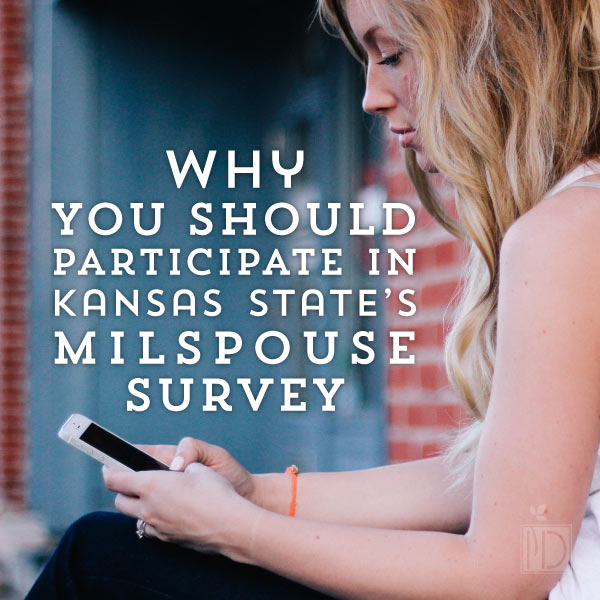Did you know that 60 percent of military spouses were reported as being overweight or obese in 2013? Like me, you’re probably not surprised by this number. Not because it isn’t alarming. But rather because you are, or know of someone who is, this statis tic. And you can’t help but be offended when well-intentioned health interventions claim that a balanced plate and regular fitness is the answer to your problems. Been there. Done that. Not working! Researchers at Kansas State University want to help and you can participate by completing their survey.
tic. And you can’t help but be offended when well-intentioned health interventions claim that a balanced plate and regular fitness is the answer to your problems. Been there. Done that. Not working! Researchers at Kansas State University want to help and you can participate by completing their survey.
Sadly, within our military community it’s automatically assumed that if you’re a part of the 60 percent it’s because your sitting home all day watching reality TV and eating bonbons. This simply isn’t true and it’s offensive.
What people fail to take into account are the stories no one hears. The anxiety you feel right before your fourth move in eight years. The depression you experience after being rejected again for a job you’re overqualified for. The frustration of not being able to find childcare. Or the loneliness you can’t shake after saying good-bye for the fourth time in nine months.
These emotions are real and they suck. What you need to know though is, you’re not alone. Thirty-nine percent of military spouses report that uncertainty, employment, childcare, and isolation keep them feeling stressed most or all of the time. These emotions combined with life-altering event like a PCS or long-term separation equal a recipe for burnout. This type of chronic stress makes individuals more prone to depression or fatigue which is often the hidden culprit in undesired weight gain.
Thus, programs that aim to improve both mental and physical health among military spouse are likely to have a more drastic effect. But as of yet, this type of research has received minimal attention. This is surprising because spouses are often regarded as the cornerstone of health and wellness for their families. Clearly, an improved understanding of their needs warrants attention.
Researchers at Kansas State University understand that programs offering a one-size-fits-all approach aren’t working, and they want to help. The K-State Institute for Health and Security of Military Families, combined with the Kinesiology Department, have developed a survey that all military spouses are encouraged to take. It only takes about 25 minutes to complete and participants will automatically qualify to receive a $50 gift card.
Results from the survey will be used to develop a tailored, evidence-based program to help spouses reach their health and wellness goals while balancing the demands of military life. If you have any concerns about this research, you can email the principal investigator, Brandon Irwin.
So, if you are having trouble connecting with others, staying physically active, or eating healthfully, then here’s your chance to let your voice be heard. A program that fits your needs could be the first step toward finding lasting change.

